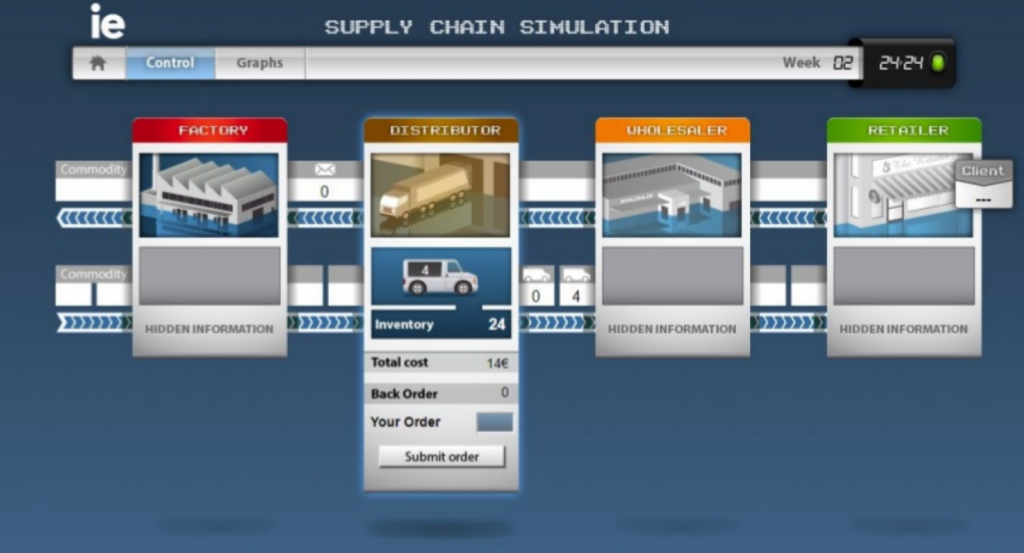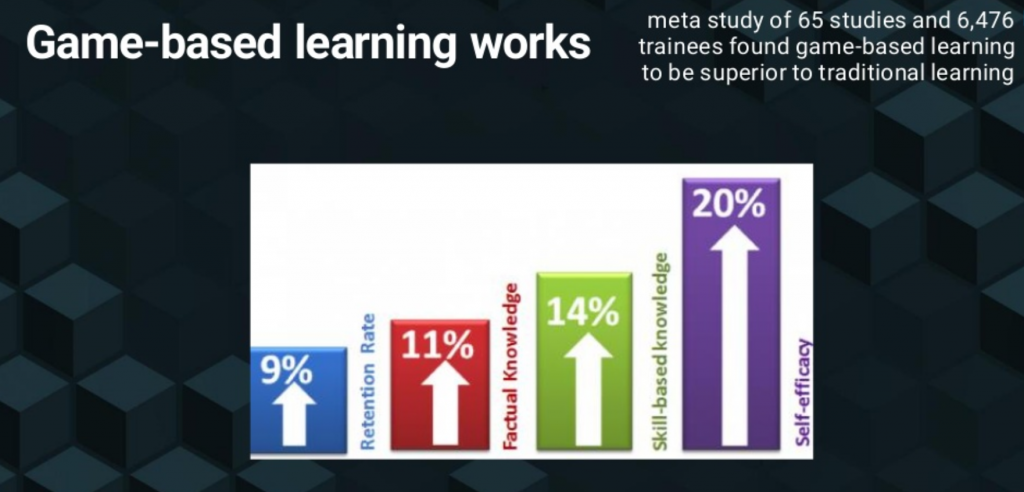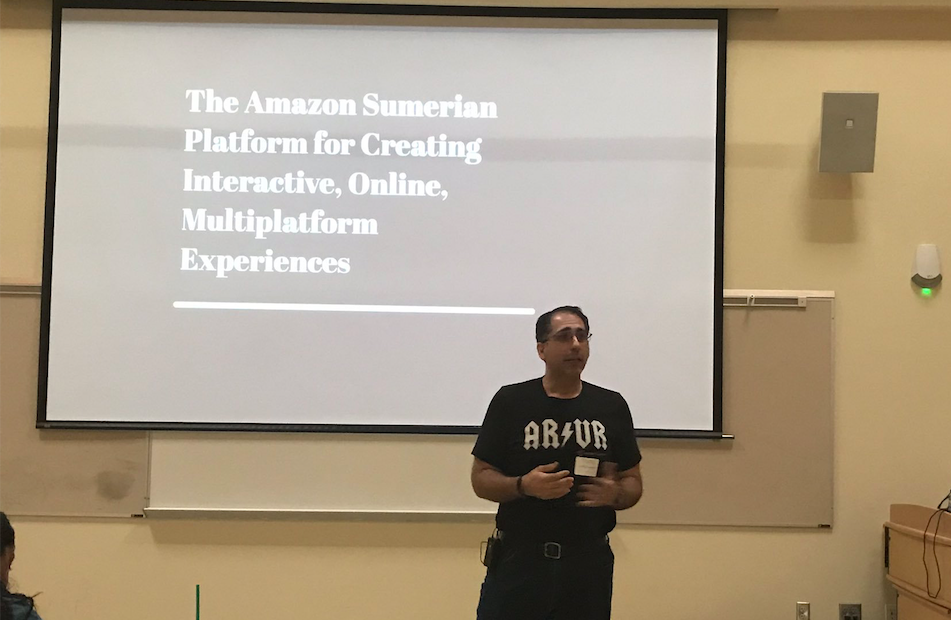In this guest post, Enrique Cachafeiro, Education and Training Coordinator, Duke Occupational and Environmental Safety Office, shares highlights from the 2019 Serious Play Conference.
I recently had the pleasure of attending and presenting at the 2019 Serious Play Conference, at the University of Central Florida, hosted by the Florida Interactive Entertainment Academy. It was my third year attending and first year presenting at this conference.
This conference is unique in providing a single venue for trainers and educators from different fields to come together and talk about innovation. It includes presenters from healthcare, corporate, government, K-12, higher education and game design fields and does a great job of giving attendees a broad view of cutting edge practices and technologies from different perspectives.
The conference ran the gamut from using traditional game techniques to enhance the classroom, to the application of cutting edge technology for instruction, such as virtual reality and artificial intelligence. Key highlights include:
High Impact Learning – MiniGames

Serious Games and Gamification for Short Term Engagement in Learning
Roberto Alvarez, Adjunct Professor, IE University, Spain
IE University is a business and law school. They invest extensively in what they call “High Impact Online Programs.” These are the equivalent of minigames that are made with the help of professors to help cover certain topics and ideas within their class. Some minigames shown in the presentation covered things like future markets, oil prices and supply chains. These interactive applications compliment the work that is either going on in the classroom or through their distance education programs. They have received high praise from both the professors and the students, and the school is considered one of the top in the nation partly because of their robust distance education program that is enhanced with these micro learning activities.

VR & “Level-Ups”
How Virtual Reality and Gamification Disrupt Learning
Anders Grostedt, President, Gronstedt Group
In this presentation, Mr. Grostedt spoke about the power of presence that is leveraged through the use of virtual reality for education and training. He specifically mentioned examples of how his company built simulations for Novartis, a healthcare company, and Walmart. For Novartis the training involved a new method of drawing blood and simulated the actual procedure using VR, building real muscle memory on the trainee. With the Walmart example, which was a mobile game, the trainees had to go through a series of tasks that imparted procedural knowledge as well as rewarded the soft skills they are looking for in their employees. Additionally, it allowed the user to “level up” to activities that were more in line with management, and apparently the app notifies Walmart administrators of possible management material based on in-game performance.
Immersive 360VR & Healthcare Innovation
Experience Reality Before it Happens
Dr. Dan Lim, Vice President of Educational Technology and Innovation, AdventHealth University
Dr. Lim’s presentation was especially poignant because AdventHealth is much like Duke in that it is a university with an expansive hospital component. They have nearly 80,000 employees over 10 states and have teaching programs in Nursing, Radiology, PA, and more. Much of this is done remotely and they had a hard time using conventional distance education techniques to convey material that is heavily based on experience. In 2017 they piloted a VR program using 360 video and have since then implemented a handful of such programs. Some of the uses are very straightforward, such as how to operate X-ray equipment without having to reserve the time from the actual equipment, or have to bus or even fly students in to the school to get hands on. However, some of the other modules teach soft skills. Several of the uses of the technology at AdventHealth now include building empathy for patients especially with behavior problems, vicarious experiences and patient and culture sensitivity.
Dr. Lim was actually very excited that I was attending and welcomed the opportunity to come to Duke and share about his work, as well as form partnerships for us to adopt similar technology.
And that’s really just the tip of the iceberg. Here are the rest of the presentations from the conference. I invite you to browse through them to see how some of these educational innovations might apply to you.

